Reply To:
Name - Reply Comment
Last Updated : 2024-05-10 15:33:00

Where few or no women have been elected and where that party has an overhang the obligation to implement the quota falls on the next party.
Inconsistency in as the law requires 25% women for a local council to be formed while exempting certain parties
The whole debate that the quota cannot be fulfilled is also a matter of political will
Uncertainty looms over fulfilling the 25% quota allocated for female representation with some parties being exempted by the law from appointing females and some parties unwilling to appoint female members. In certain councils no female candidates have been elected. Further, the Election Commission has received complaints  that the number of women to be appointed has been determined excluding the overhang seats in certain councils.
that the number of women to be appointed has been determined excluding the overhang seats in certain councils.
Earlier last year the Local Authorities (Amendment) Act, No 16 of 2017 was amended requiring each local authority to comprise not less than 25% of female representation. Under the mixed electoral system, under which the Local Government Elections were held, 60% of the total number of members to a local authority were expected to be nominated from wards (first nomination paper). They contested under the First Past the Post system (FPP). Forty percent of members are to be returned from the additional nomination paper. The law requires that 10% of the nominees in the first nomination paper to be women. Fifty percent of the nominees in the additional nomination paper should be women. This is envisaged to fulfill the 25% quota.
When the number of women elected from all wards in a local authority area does not equate the allocated seats for women to fulfill the quota in a council, the law requires the shortfall in the number of members to be returned from the women candidates in the first nomination paper or the additional nomination paper. However, political parties or independent groups which have received less than 20% of the total votes and less than 3 members (elected or returned), are exempted from appointing women.
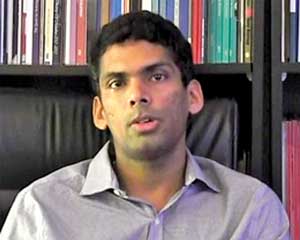
But if political parties decide not to nominate women and say they are exempted, this creates a problem. So how the matter will be resolved depends on how the EC acts
Head of Political Research at the Verité Research, Janeen Fernando
Further, if a political party wins its ward seats with an overhang it will not have vacant seats allocated to them proportionately for females to be appointed. Therefore, apart from the female candidates who have won wards, political parties with overhangs are unable to appoint females. Under the mixed electoral system the number of seats allocated for a party in a local authority is determined proportionately to the votes polled. Then the number of seats won by winning wards (FPP) is subtracted from the seats allocated proportionately. For instance, if the party is allocated 10 seats proportionate to their votes, and if they have won 7 wards, the three seats that remain are the additional seats.
However, in an overhang the number of seats obtained through FPP exceeds that of the seats allocated for the party proportionately. For instance, in the Kotte Municipal Council Sri Lanka Podujana Peramuna (SLPP) was allocated 15 seats. However, they won 18 seats through FPP. Therefore the 3 seats which constitute the difference are the overhang seats. Head of Political Research at the Verité Research, Janeen Fernando said that the allocation of votes as 60% for FPP and 40% for PR enabled political parties to win more than 60% of the seats with less than 60% of the votes, thus creating overhangs. “Overhangs can occur in mixed member proportional systems,” he told Dailymirror .
According to Feminist Researcher, Chulani Kodikara, currently doing her PhD at the University of Edinburgh, in areas where few or no women have been elected and where that party has an overhang the obligation to implement the quota falls on the next party.
For instance, in the Dickwella Pradeshiya Sabha the SLPP has an overhang and only one woman has been elected from their party. The United National Party (UNP) has been allocated a total of seven seats while the Sri Lanka Freedom Party(SLFP)and the Janatha Vimukthi Peramuna(JVP) have two each. Due to the exemption that parties with less than three seats are exempted the SLFP and the JVP are not required by the law to appoint women. Therefore, the obligation falls on the UNP to select females for six of their seven seats of which one was won by an elected candidate. Experts and activists pointed out that it was against the principles of democracy to ask an elected male candidate to step down so that a female can be appointed to fulfill the quota. Therefore the SLPP cannot appoint females other than the female candidate who has been elected.
Fernando said there is inconsistency as the law requires 25% women for a local council to be formed while exempting certain parties. “On one hand the law is very clear that local authorities should constitute 25% women. But the law doesn’t say what happens if they don’t fulfill this quota. But if political parties decide not to nominate women and say they are exempted, this creates a problem. So how the matter will be resolved depends on how the EC acts,” he said.
He added that political parties that are exempted are not forced to nominate only men, and therefore can nominate women. “The whole debate that the quota cannot be fulfilled is also a matter of political will,” he noted.
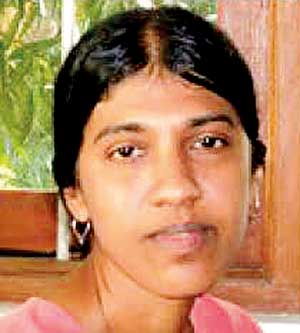
But the question is what happens if these political parties don’t appoint women? If you take the Dikcwalle case again, if the UNP appoints say five woman and one man, they are flouting the law
Feminist Researcher, Chulani Kodikara
Further, he pointed out that parties were required to nominate only 10% of female candidates from the ward level, which was a low percentage for women to be elected to fulfill the quota.
Meanwhile the Election Commission has also received complaints pointing out the Election Commission has overlooked the number of overhang seats when determining the number of females who should be appointed. Prof. S. Rathnajeevan Hoole, a member of the Election Commission said, in the Walikamam North Pradeshiya Sabha the total number of members to be returned was 35. However, there is an overhang of 4 seats, thus raising the total number of seats to 39. “The complaint states that only eight women have been requested to be appointed. But it says that when the overhang seats are counted, the number of seats for women should be nine. My view is that members include the overhang,” he said speaking to the Dailymirror .

Similarly, in the Valvettithurai Urban Council the total number of members to be returned is 15. The Election Commission has requested 3 women to be appointed. This is excluding the 2 overhang seats which raised the total number of seats to 17. If the two overhang seats are added the Urban Council should include 4 women.
Responding to the contention that certain parties were treated unfairly by the obligation to appoint females in instances where other parties were exempted, Prof. Hoole said that it was neither a burden nor unfair. “What’s the harm in a woman taking a place? These are the nominees of parties. The parties chose these women and put them on the list. How can they then say it’s a burden? In no way is it a burden.”
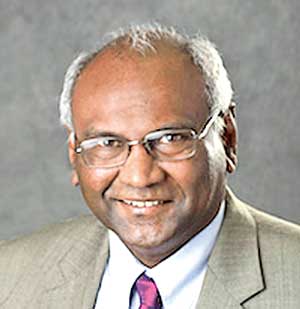
The complaint states that only eight women have been requested to be appointed. But it says that when the overhang seats are counted, the number of seats for women should be nine. My view is that members include the overhang
Prof. S. Rathnajeevan Hoole, a member of the Election Commission
Kodikara said the Local Authorities Elections Act was a strange law as the obligation to appoint women does not fall equally on all parties. “In that sense I guess you can argue it is unfair, for example in the case of Dickwella, where the UNP has to appoint six women out of the seven seats, while five political parties are represented in the council.”
However, she pointed out that the Act was debated and discussed in Parliament, and therefore it was now too late “But the question is what happens if these political parties don’t appoint women? If you take the Dikcwalle case again, if the UNP appoints say five woman and one man, they are flouting the law. But we don’t know whether the Election Commission will reject such a list, and send it back to the party.”

Meanwhile, the Dailymirror also learned that some candidates who are senior and popular have lost by a very small margin. “This is a dilemma that parties are facing- that certain senior popular members who may have lost at the ward level with a very low margin or even one vote, are completely blocked from coming to the council from the PR list in cases such as Dikwella where all the candidates from the PR list should be women. This is a huge problem because they would have invested a lot of time, money and energy,” Kodikara pointed out.
However, she stressed that compromises need to be made to implement the quota. “So the fact that some people are affected in this way can’t be helped. It’s unfortunate, but that’s what a quota of this nature does,” she said stressing that the quota tried to address the historic discrimination and marginalization of women. “People will also say that a particular man couldn’t get in, but some useless woman who has no experience in politics got in through the list. That woman has no experience in politics because of how the political parties have worked in this country. People should understand this,” she said.
She also said women’s groups are prepared to go to court if the quota is not implemented as promised.
At a recent press conference Election Commission Chairman, Mahinda Deshapriya said that 535 women candidates have been elected which was a positive sign compared to the low female representation before, which stood at 1.9%. However, in certain areas such as the Batticaloa Municipal Council and Manmunaipattu Pradeshiya Sabha in the Batticaloa district; Karaitheevu Pradeshiya Sabha, and Thirukkovil Pradeshiya Sabha in Ampara; Velanai and Neduntheevu Pradeshiya Sabhas in Jaffna no female candidates have reportedly been elected.
Apart from the flaws in the law the Daily Mirror has learned that women have been discouraged from contesting. As reported by the Daily Mirror in a previous article some female candidates were subjected to violence. Certain female nominees raised concern of how they were added to the additional nomination list when they could have contested from the ward list. Some female candidates were nominated in areas where the opposition was weak. The sole focus of certain party organizers have been to fulfill the 10% mandatory requirement in terms of the law to nominate women. “Leaders say that they conformed to the 10% quota. They say that the party lost in those areas because of women,” said Activist Shreen Saroor. She claimed that it was likely that male candidates would take the seats allocated for women, as the number of seats was increased to allocate the quota. Saroor argued that if the quota cannot be implemented in certain councils, the shortfall should atleast be fulfilled by appointing women for other councils, so that when the total number of members is calculated from the country as a whole, the 25% quota is implemented.
Saroor suggested a closed list with a male and female member positioned alternatively would have addressed the situation to some extent. However, currently there is no closed list in place and parties have the discretion to decide whom they select to hold office from the additional list. Many women nominated in the additional nomination paper are unsure whether they will be appointed. In a closed list the order of members is decided beforehand and cannot be changed later. Members get the opportunity to hold office according to the positioning in this list.
The quota cannot reportedly be fulfilled in 10 local government bodies. When queried about the consequences of a council not fulfilling the quota when the law mandates a 25% quota for women, Prof. S. Rathnajeevan Hoole, a member of the Election Commission informed that there is now consensus that the council can be formed. At a meeting convened last month at the Parliament where the Election Commission met all the party leaders, the legal officer to the Ministry of Provincial Councils & Local Government has pointed out that Municipal Councils Ordinance and the Pradeshiya Sabhas Act No 15 of 1987 do not invalidate a council which is improperly constituted. The Local Authorities Elections (Amendment)Act of 2017 states local authorities should constitute 25% of women ‘notwithstanding any provision to the contrary in this Ordinance(The Local Authorities Elections Act)’. As the Municipal Councils Ordinance and the Pradeshiya Sabhas Act have not been rescinded and as the provision on the 25% quota in the Local Authorities Act does not exclude them, the contention was that the councils can be formed, Prof. Hoole said.
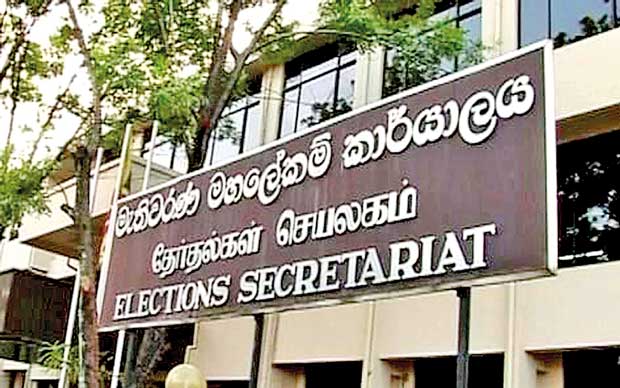
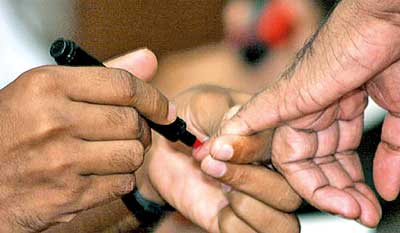

Add comment
Comments will be edited (grammar, spelling and slang) and authorized at the discretion of Daily Mirror online. The website also has the right not to publish selected comments.
Reply To:
Name - Reply Comment
US authorities are currently reviewing the manifest of every cargo aboard MV
On March 26, a couple arriving from Thailand was arrested with 88 live animal
According to villagers from Naula-Moragolla out of 105 families 80 can afford
Is the situation in Sri Lanka so grim that locals harbour hope that they coul
7 hours ago
7 hours ago

09 May 2024
09 May 2024
09 May 2024